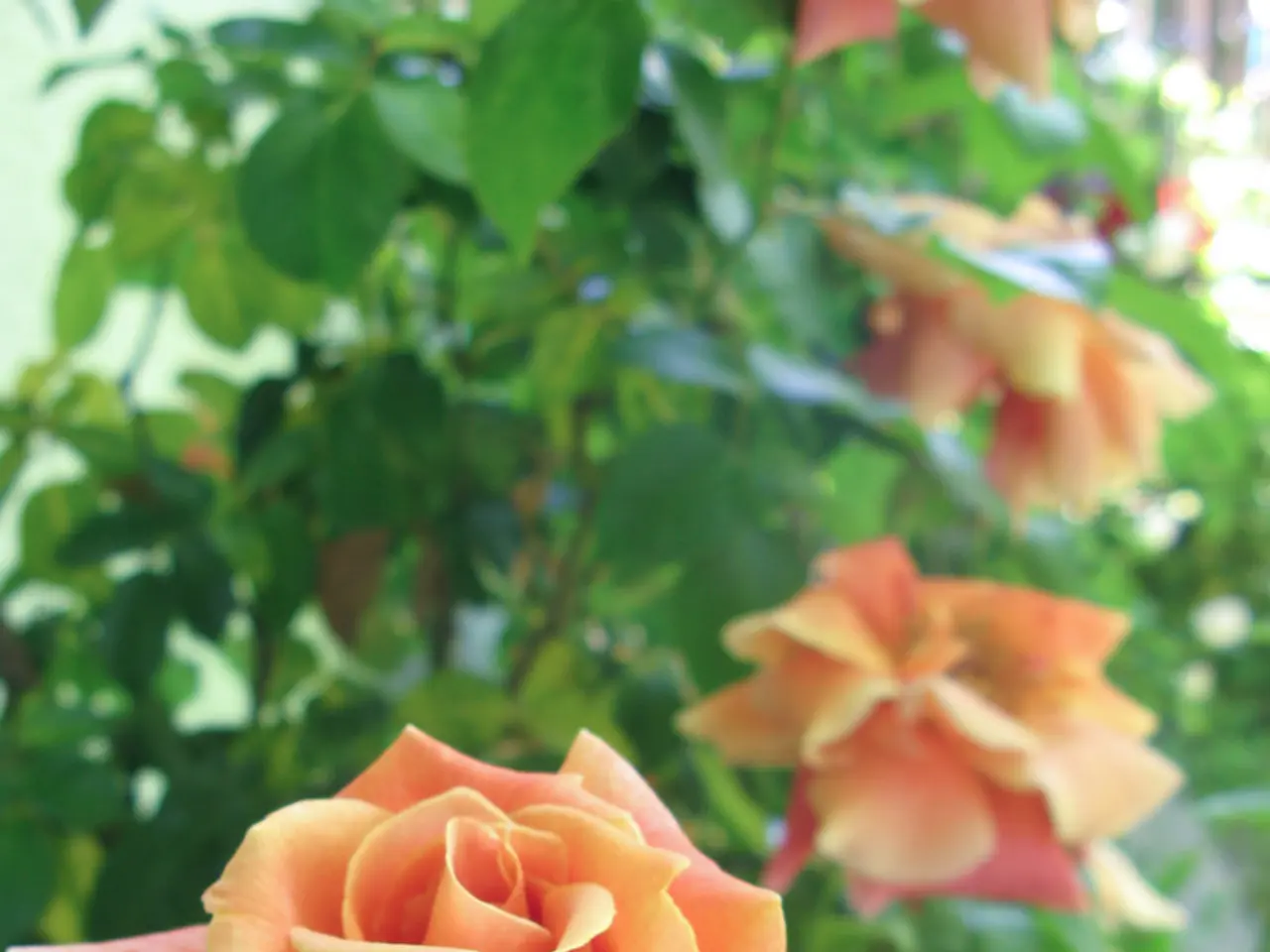Tips for Effective Pest Management in Rose Gardens
Roses are a beautiful addition to any garden, but they can be vulnerable to common pests such as aphids and mildew. However, there's a solution that's cost-effective, safer for families and pets, and eco-friendly: natural pest control methods.
Identification
To identify these common pests, keep an eye out for small, soft-bodied insects clustering on new growth and undersides of leaves, which are likely aphids. Aphids cause distorted leaves and sticky residues (honeydew). On the other hand, mildew appears as a white powdery coating on leaves, stems, and buds, especially in humid conditions.
Natural Control Methods
- Insecticidal Soap
- Prepare a solution by diluting a few drops of mild dish soap in a liter of water. Thoroughly spray this on affected rose parts, particularly undersides of leaves where pests hide. Soap contact kills aphids and other soft-bodied insects by disrupting their cell membranes.
- Companion Planting
- Plant herbs and flowers that repel aphids and attract beneficial insects near roses. Examples include garlic, chives, and onions to repel aphids, and marigolds and nasturtiums to attract predatory insects like ladybugs and lacewings.
- Beneficial Insects
- Encourage or introduce natural predators such as ladybugs, lacewings, and parasitic wasps that feed on aphids and other pests. Providing habitat (flowers, water, shelter) encourages beneficial insect presence to keep pest populations in check naturally.
- Regular Monitoring and Cultural Practices
- Inspect rose plants weekly, especially under leaves and new growth, to catch pests early before infestations spread. Remove and properly dispose of infected or heavily infested leaves to reduce sources of fungal spores and pests. Ensure proper plant spacing and prune interior canes to improve airflow, reducing humidity that favors mildew development. Use organic fungicides like neem oil if mildew appears; neem also helps deter some insect pests.
This combined approach—inspection, organic soap sprays, companion planting, beneficial insects, and good garden hygiene—provides effective, natural control of aphids and mildew while promoting healthy, vibrant rose growth.
In addition to these methods, basil, marigolds, and garlic are plants that repel pests in the rose garden. Deep root watering encourages deep root growth in roses, and insecticidal soap can be made by mixing two tablespoons of soap specifically made for plants with a quart of water in a spray bottle.
By adopting this integrated approach, you'll not only promote healthier plants but also create a balanced ecosystem in your rose garden. Always remember to test any new solution on a small area first to avoid phytotoxicity.
[1] University of California Agriculture and Natural Resources. (2020). Home Garden IPM: Aphids. https://ipm.ucanr.edu/PMG/r70000511.html [2] Cornell University Cooperative Extension. (2020). Aphids. https://entnemdept.ufl.edu/creatures/vegetable/aphids.html [3] University of Vermont Extension. (2020). Garden Pests: Aphids. https://extension.umass.edu/landscape/lawn-garden-and-turf/garden-pests-aphids
Engage in companion planting by growing basil, marigolds, and garlic around your roses, as they act as natural repellents for garden pests. For a homemade insecticidal soap, combine two tablespoons of plant-safe soap with a quart of water in a spray bottle, then use this solution to treat affected areas of your home-and-garden, particularly the undersides of rose leaves.




